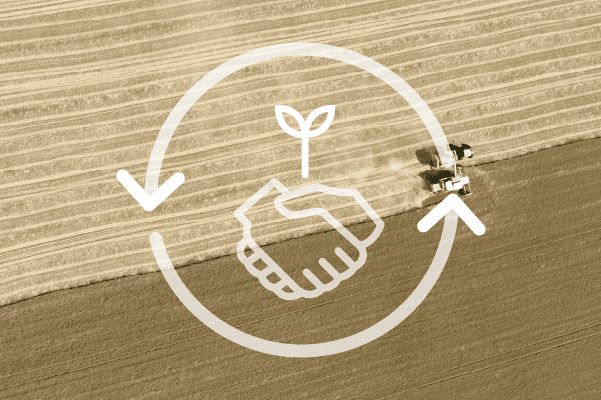Op Ed: Rachel Calomeni, SVP Growth & Innovation at HowGood, on Ingredient Data as a Powerful Tool – vegconomist

Rachel Calomeni is Senior Vice President of Growth and Innovation at HowGood, an independent research company and SaaS platform with the world’s largest ingredient sustainability database.
In this piece, Rachel argues that the next phase of innovation in vegan foods will be led by ingredient data.
Ingredient data is a powerful tool for vegan brands, here’s why.
By Rachel Calomeni
Consumers are demanding plant-based products. From 2018 to 2021, vegan alternatives to meat and milk grew by 54%, and in 2022, the plant-based food market was worth $7.4 billion according to the Good Food Institute. This exceptional growth has catapulted brands such as Beyond Meat and Oatly into the spotlight and into consumers’ kitchens.
While interest in vegan-based foods continues to grow, consumer interest in ingredients is also increasing. Nearly two-thirds (or 63%) of adults say the ingredients in a food or beverage product have at least a moderate influence on what they buy. For vegan businesses, this represents a pivotal moment where ingredient data is becoming a necessity in order to stand out beyond the traditional labels of ‘meat-free’ or ‘dairy-free’.

Granular impact data collection at the ingredient level can offer vegan food brands the opportunity to bolster their commitment to the planet, while strengthening their ingredient supply chain and communicating those efforts to customers.
Ingredient Data for Better Ingredient Sourcing
While consumers often look to vegan foods to ensure certain ingredients are not included in the production process, granular sustainability data about the ingredients that are included can offer a more holistic view into the true impacts of a vegan product.
Grains, vegetables, fruits, and all other crops each have their own footprints. These non-meat, non-dairy ingredients, when not sourced correctly, can still be carbon- and water-intensive additions to a product formula. This is where granular data can identify the ingredients driving risk to a business’s sustainability efforts, and help to plan for recipe changes as needed. As product development teams design new products and update their ingredient sourcing to satisfy decarbonization targets, access to this data during the R&D process can enhance efficiency and drive innovation.

Improve Supply Chains with Regenerative Agriculture
Our food system is deeply vulnerable to the effects of climate change. Regenerative agriculture may offer a solution to protect food sources, while also mitigating the effects of an increasingly warmer planet. The farming practices that define regenerative agriculture can help balance the planet’s climate and carbon cycles by rebuilding soil health, increasing biodiversity and improving water cycles.
Farmers who utilize these practices have been shown to have improved yields even in the instance of extreme weather, according to a report by the UN Special Rapporteur on the Right to Food. Sourcing from farmers who are nurturing drought-resistant soil will help to secure key ingredients for vegan food brands during times of extreme weather. Securing granular, crop- and location-based impact data will help brands find the suppliers utilizing the best agricultural practices for sustainability.

Comply with Emerging Legislation
Vegan food brands are often a climate-friendly alternative to mainstream products because of their absence of meat and dairy. And while meat and dairy certainly contribute to GHG emissions, for vegan brands to be able to comply with emerging regulations on climate labels they will still have to be transparent about their product’s overall environmental footprint.
“Vegan brands have been among the many leaders in the sustainability movement”
Consider how the Federal Trade Commission (FTC) is looking to potentially revise its Green Guides to crack down on greenwashing claims. To maintain sustainability claims moving forward, companies will likely be required to provide transparent, well-backed, and accurate ingredient impact data. For brands doing business in the EU, the Green Claims Directive is another proposed piece of legislation that would require brands to substantiate their sustainability claims with scientific evidence. As new guidelines and rules are put forth, vegan food brands will have to back up their environmental claims to maintain their share of the market.
Vegan brands have been among the many leaders in the sustainability movement to create environmentally-friendly foods. Now that we know 87% of a food company’s total impact is generated by the ingredients, the next phase of innovation in vegan foods will be led by ingredient data.




